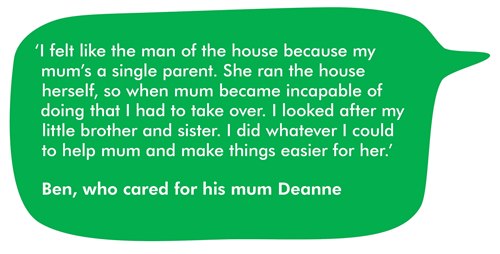This week is Carers Week, and senior content developer Rachel has written a blog about the different types of support available for people who look after someone with cancer.
If you are looking after a person with cancer, you may not think of yourself as a carer. You might just see it as being there for a loved one or doing your bit to help.
But if you give unpaid support to a family member, partner, friend or neighbour who could not manage without this help, you may be a carer. Caring can mean many things, including:
Recognising that you are a carer can be the first step to getting the support you need. And that is important for both you and for the person you are looking after.

What support is available?
When you are looking after someone with cancer, you may meet different members of their healthcare team. Doctors and nurses are a good source of information to help you with caring.
They can also refer you to a social worker, who can visit and carry out a needs assessment for the person you are looking after. This will make sure they get access to any services they need and are entitled to, such as home care, laundry services or benefits advice.
The social worker can also carry out an assessment of your needs. This is called a carer’s assessment. It will give you the chance to talk about any help you need. You can still ask for this assessment even if the person you are caring for does not want an assessment of their own needs, or is not eligible for support.
When you are a carer, you may need to work less hours, or stop working altogether. If you are worried about money, you might be eligible for financial support from the government. You also have rights at work that might make it easier for you to keep working while you are caring. You can speak to one of our advisers about this by calling the Macmillan Support Line on 0808 8080 000.
Taking time for yourself
Looking after someone you care about can cause many different feelings and emotions. Try to talk to someone about how you are feeling, such as a family member, partner or friend. Support groups can be a good way to talk to people in a similar situation. Our Online Community has a specific group for carers at macmillan.org.uk/carersgroup
It is important to look after yourself too. Having some time to yourself can help you feel more able to cope. Even if you can only get a short time off, try to relax and do something you enjoy. This might be reading, going for a walk or meeting friends.
More information
We have got more information about caring in our booklet, Looking after someone with cancer. This includes information about caring at home, managing symptoms and side effects, other care options and the emotional effects of caring. If you are under the age of 18, you can find helpful information for young carers in our booklet A guide for young people looking after someone with cancer.
To see what else Macmillan's cancer information team has been blogging about, please visit our blog home page! You can subscribe to receive our blogs by email or RSS too.
We're with you every step of the way
The Macmillan team is here to help. Our cancer support specialists can answer your questions, offer support, or simply listen if you need a chat. Call us free on 0808 808 00 00.
Comments? Feel free to add them below (you need to be logged in).
Keep in touch Follow Macmillan’s cancer information team on Twitter @mac_cancerinfo
Whatever cancer throws your way, we’re right there with you.
We’re here to provide physical, financial and emotional support.
© Macmillan Cancer Support 2024 © Macmillan Cancer Support, registered charity in England and Wales (261017), Scotland (SC039907) and the Isle of Man (604). Also operating in Northern Ireland. A company limited by guarantee, registered in England and Wales company number 2400969. Isle of Man company number 4694F. Registered office: 3rd Floor, Bronze Building, The Forge, 105 Sumner Street, London, SE1 9HZ. VAT no: 668265007